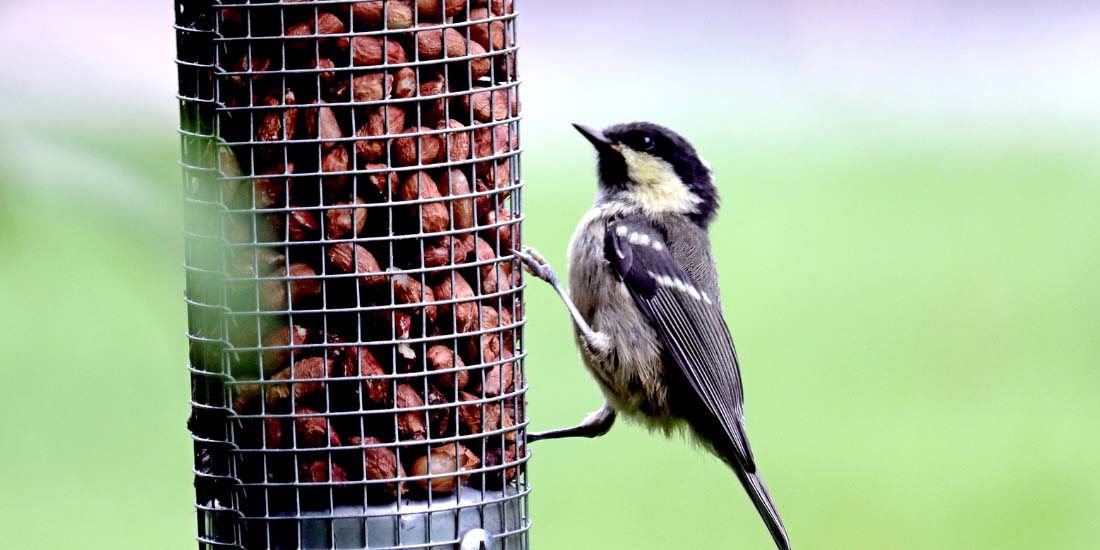How often should you fill your bird feeders?

Below, we offer a few tips on how often you should fill your bird feeders with bird food to help you and your garden birds have the best experience possible so they never go hungry.
Keep an eye on how much they are eating
It’s a good idea to monitor how much food your visitors eat and how much they leave behind, so you're providing the correct amount of food when you fill your bird feeders. If you notice a lot of food remains at the end of the day, consider reducing the amount of food you are putting out. With less food left sitting out, you will ensure there’s nothing left to spoil or potentially go mouldy. On the other hand, if they are clearing all the food away and hanging around afterwards looking for more, you can give them a slightly larger portion next time to see if that satisfies their hunger.
Where you place your bird feeders is also important. Your garden birds like their feeders in a sheltered location away from direct sunlight and strong winds, with good visibility so they can spot any approaching pesky cats sneaking up on them while they snack!
Try and fill your bird feeders once a day
We recommend you put fresh food out at least once a day. However, birds like routine, so you should put food out at a similar time. This way, your local birds know when to call into your garden for snacks.
An excellent way to do this is to develop a routine for them that ties in with your eating habits. So, for example, while you wait for the kettle to boil, you could go out into the garden for a few minutes and top up their bird feeders. You could also do this in the early evening while dinner cooks or during a break in the middle of your favourite radio or TV show – you could be outside giving your garden birds their dinner.
For daily feeding throughout the year, your birds will benefit from food mixes like our Everyday Essentials or Four Season Feast, which we have packed with energy-rich seeds and nuts. These mixes are high in fat, oils and nutrients that will help birds thrive.
Similarly, for spring and summer feeding, our Summer Glow bird food ticks all the boxes for what wild birds require during these busy seasons. And our Robin Ready mix will feed the smaller birds in your garden, giving them a vast range of smaller seeds suited to their softer beaks.
Filling your bird feeders in winter
It is best to increase the frequency of your feeding routines during the cold winter months if you have time. For example, if you can spare time, consider filling your feeders twice a day – but only if you know they are eating this much. If this is the case, you should fill your bird feeders first thing in the morning to offer birds a replenishment of food to kick-start their day. And then refill them just before dusk to give them a welcome boost before the cold of night sets in.
At this time of year, birds benefit from high-fat, high-energy food such as our Winter Wellness or Four Season Feast.
A quick recap on when you should fill your bird feeders:
- Keep an eye on your feeders to determine how much your garden birds are eating, and top-up the bird feeders accordingly.
- Remember, it’s essential to check the condition of the food in your feeders to ensure the birds are getting healthy, unspoiled, mould-free nutrition. And this is especially important during hot and humid or cold, damp weather conditions.
- You will also need to check your bird food levels regularly on table feeders and feeding stations for the same reasons.
Regardless of whether your feeders need refilling often or if they clear all the food away each time, we recommend removing any uneaten food and giving the feeders a thorough clean once a week to prevent bacteria from building up.